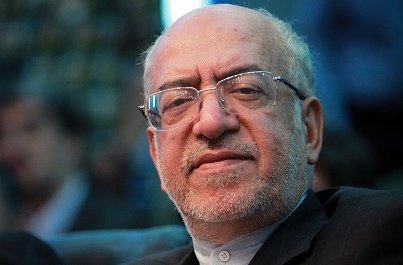Speaking at Iran-South Korea trade conference on Tuesday morning in Tehran, Iran's Industry, Mines and Trade Minister Mohammad Reza Nematzadeh pointed to the constructive negotiations between presidents of the two countries saying “despite economic pressures of sanctions, Tehran-Seoul relations were never halted and the few difficulties experienced have mainly been due to limitations on oil sale, marine transportation or banking issues.”
“Following the nuclear deal, the Islamic Republic of Iran is ready to warmly welcome Korean companies for boosting multilateral ties,” added the official noting “in line with the Resistance Economy policies pursued by the Leader and government, we are willing to replace short-term approach in business partnership with long-term and stable cooperation within the framework of joint investment.”
Iranian industry minister continued “Iran seeks to boost ties with South Korea in developing design and engineering capabilities in order to open regional and international markets to co-productions of Tehran and Seoul while Korean firms can also set up R & D centers in Iran.”
“Industrial policies of the Islamic Republic of Iran would not allow goods production under Completely Knocked Down (CKD) or Semi Knocked Down (SKD) conditions,” emphasized Nematzadeh commenting “on the other hand, Iran will provide Koreans with tax facilities and will resolve possible deficiencies or shortcomings faced by them in the investment process.”
Minister of industry further underlined “given the mutual interest of Iran and Korea in industrial, mining, infrastructure, tourism and service cooperation, we look forward to good relations between the two countries in numerous arenas including railroad, shipbuilding, appliances, electrical equipment, machinery, audiovisual industries, telecommunications as well as renewable energy.”
“In the first stage, the need is felt for normalization of banking relations, presence of banks in financing issues as well as export insurance coverage on which effective talks have been conducted,” Nematzadeh concluded.
HA/3615432
